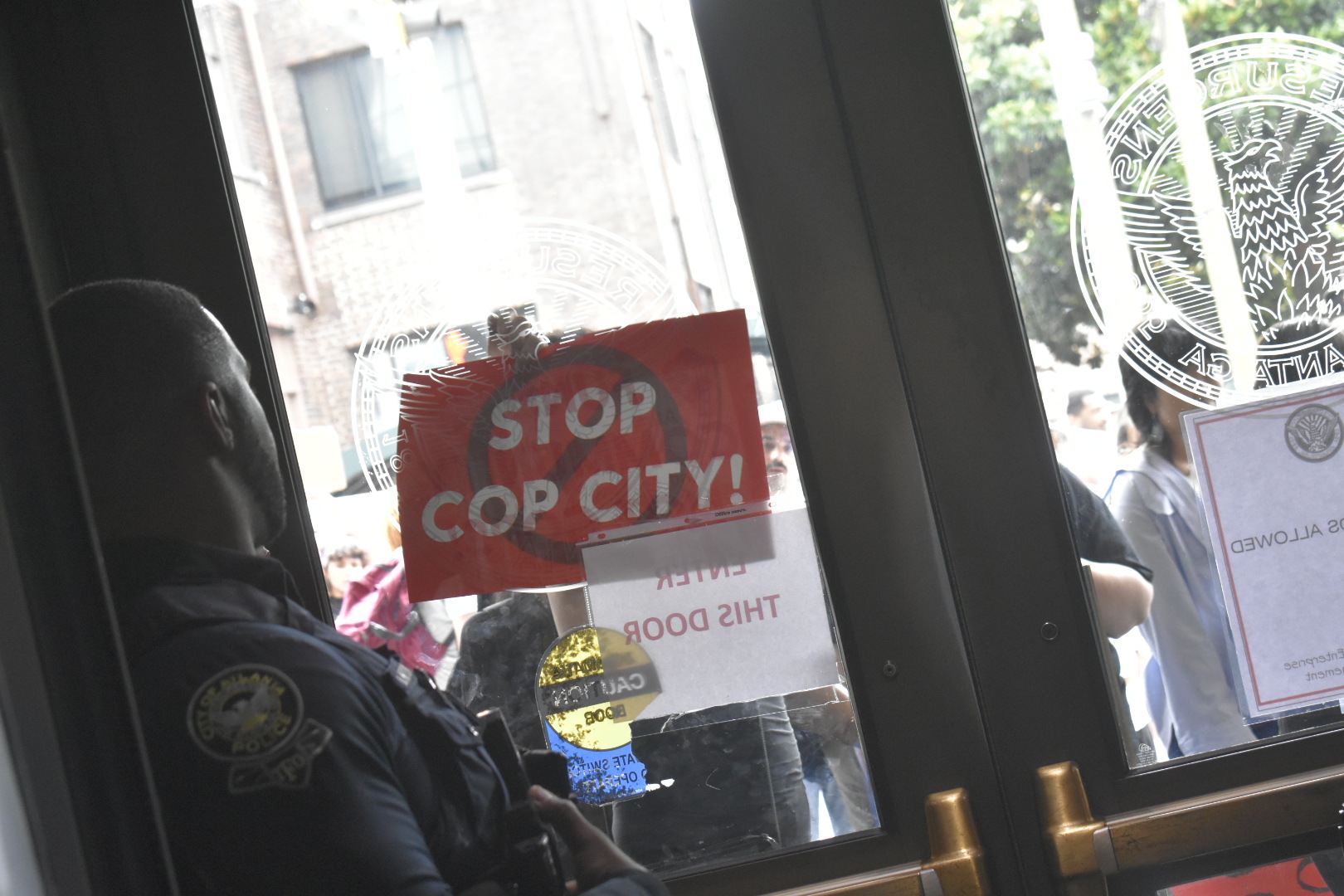- 20 Posts
- 56 Comments

 1·27 days ago
1·27 days agoThere is no public ledger for cash. There is no attack surface on the devices of yourself or the other party by which your cash transaction can be compromised. There are no electronic records to exfiltrate unless one party proactively deliberately records a transaction. And if they do, there is no non-repudiation. There is no risk that any cryptanalytic advances can later expose the whole history of all cash transactions or even a chain of cash transactions. Cash transactions leave no trace unless you do them under surveillance.

 1·28 days ago
1·28 days agoThis is the thread covering it:
https://links.hackliberty.org/post/2983664
Apparently the hospital eventually agreed to the patient not using the app but demanded the patient agree to an indemnity that the hospital would not be liable if they fail to reach him quickly.

 2·28 days ago
2·28 days agoWhere is this? I think if he is in China or Europe he would already be excluded from society to some extent. But I don’t believe it would be a problem in the US (of course neglecting obscure cases like that of the Georgia attorney general).
There are so few of us without smartphones that are updated Google/Apple attached and subscribed that we should be collecting the stories of exclusion somewhere.
(edit) I take back what I said about the US. I just remembered a patient who was denied medical care in the US because he did not go to the Google Playstore to install the app of the hospital.

 3·28 days ago
3·28 days agoThat link is unreachable from secure networks (tor). I can’t quite work out if you’re talking about a digital national passport, or a COVID “passport”. I suspect you mean the former.
I see no problem with border control forcing people to present a passport (or particular form thereof) if they have one. But a citizen is (or should be) absolutely entitled to enter their country, full stop. If they have no documentation at all, it would be an abuse of their rights to deny them entry on that basis. We might expect a citizen without docs to face a long inconvenient process to verify their citizenship, but it’d be a perverse injustice to deny them entry. IMO a passport should be a convenience, not a requirement.
I recall either Australia or NZ was refusing entry of their own well documented citizens if either they had COVID or were unvaccinated (I forgot which). Regardless of their COVID situation there is no good reason for denying a citizen entry. It dilutes the purpose and meaning of citizenship. Anyway, this is why I cannot be sure what passport you’re talking about.

 5·28 days ago
5·28 days agoI think the common term for “internet-izing” is #digitalTransformation. That’s the language used in the EU as they enact policy that ultimately cattle-herds people into a forced digital transformation. The quasi antithesis of that which wiser people support would be:
- right to be offline
- right to be analog
- right to unplug
I kind of favor right to be analog because it also somewhat implies a right to cash and to be unbanked.

 111·28 days ago
111·28 days agoIndeed in Netherlands I already encountered an e-receipt-only fiasco at a cafe. They forced me to order and pay by app as a cloud order (no cash… no paper menu either). I had a degoogled phone so I could not do Playstore and their captive portal did not work on my phone anyway. So a staff member had to lend me their phone just to be able to order. Then the order was trapped in their account. The receipt becomes more important when paying by card so I can check it against the bank statement later. They had no printer. Only e-receipts. And their app could not handle entering another email address than what the staff member already entered for their own account – assuming I were even willing to give them a (disposable) address as I oppose feeding Google on general principle and their email provider was Google. They could not handle pulling out a notebook and writing out a receipt.
Throughout the whole fiasco the staff must have been wondering “what’s wrong with this person? How can someone be walking around in public without a recent smartphone and all the Google services?” Probably wondered if I was part of an organised crime gang.
I’m also excluded from my public library’s Wi-Fi for not carrying a subscribed SMS-capable phone to get past the captive portal. So WTF, to get wi-fi service (financed with public money) you must already be equipped with tools that are generally redundant with wi-fi to begin with. They seem to be excluding the people who would need wi-fi the most from wi-fi service.

 11·28 days ago
11·28 days agoNot sure what your point is. Monero is far more traceable than cash. Any self-respecting privacy advocate would fight against the war on cash first and foremost. Anything else is less important to fight for because it’s less private. When cash is gone, gold coins will probably be more private than Monero.

 21·29 days ago
21·29 days agomander.xyz has this:
mandermybrewn3sll4kptj2ubeyuiujz6felbaanzj3ympcrlykfs2id.onion
but it’s a disaster. Data loss. Posts go into a black hole. Use it on a read-only basis.

 11·2 months ago
11·2 months agoTo reach the particular law office which has become a specialist in this particular case, yes you are trapped because they use MS Outlook. There is no way to exchange email with them without involving MS.
Victims can use any lawyer, but any other lawyer will need to research the case (at the victim’s cost).

 22·3 months ago
22·3 months agoThose do not obviate the use cases I have in mind. Secure drops are useful tools for specific whistle blowing scenarios. But they are not a one-size-fits-all tool.
I routinely use framadrop and then transmit the links to regulators or whoever I am targeting to act on a report. But what if the target audience is not a specific journalist or regulator but rather the entire general public? The general public does not have access to reports submitted to the Guardian’s dropbox or NYTimes’ dropbox. Those are exclusive channels of communication just for their own journalists. The report then only gets acted on or exposed if the story can compete with the sensationalisation level of other stories they are handling. If I’m exposing privacy abuses, the general public does not give a shit about privacy for the most part. So only highly scandelous privacy offenses can meet the profitable publication standards of Guardian and nytimes. The reports also cannot be so intense as to be on par with Wikileaks. There is a limited intensity range.
The fedi offers some unique reach to special interest groups like this one without the intensity range limitation.
NYtimes is also a paywall. So even if the story gets published it still ends up a place of reduced access.
They are great tools for some specific jobs but cannot wholly replace direct anonymous publication. Though I must admit I often overlook going to journalists. I should use those drop boxes more often.
(edit) from the guardian page:
Once you launch the Tor browser, copy and paste the URL xp44cagis447k3lpb4wwhcqukix6cgqokbuys24vmxmbzmaq2gjvc2yd.onion or theguardian.securedrop.tor.onion into the Tor address bar.
That
theguardian.securedrop.tor.onionURL caught my attention. I did not know about onion names until now. Shame it’s only for secure drops.

 11·3 months ago
11·3 months agoCustomers should take several proactive steps to protect their personal information and reduce potential risks: Be Wary of Phishing Attempts
Customers should rethink their stupid ass decision to use AT&T in the first place since it has been known for over a decade that AT&T is the most privacy abusive of all US telecoms, most notably their role in project Fairview (archive for clearnet users and wikipedia).
AT&T customers don’t give a shit about privacy. But I do have some sympathy for all the non-AT&T people who communicated with AT&T pawns.
BTW, the OP’s link avoids reclaimthenet’s shitty popup if proxied through 12ft.io:
https://12ft.io/https://reclaimthenet.org/nearly-all-at
Not sure it matters since the text is in the OP anyway… guess if someone wants to share it around.

 12·4 months ago
12·4 months agoFolks, FedEx has always been on the extreme right. Some basic facts:
- FedEx is an ALEC member (extreme right lobby and bill mill), largely as an anti-union measure
- FedEx founded by an ex military serviceman
- FedEx gives discounts for NRA membership (though I heard this was recently discontinued). NRA is obviously an extreme right org who also finances ALEC.
- During the NFL take-a-knee protest, FedEx is one of very few die-hard corps that refused to give in to the boycott. FedEx continued supporting the NFL against all the Black Lives Matter athletes taking knees and getting punished.
- FedEx ships shark fins, slave dolphins and hunting trophies. Does not give a shit about harm to animals (even when endangered) or environment.
I have been boycotting FedEx for over a decade. Certainly being pro-surveillance is fitting with their history and should not be a surprise to anyone who is aware of this background.
The only moral inconsistency is that FedEx has a reputation for not snooping on your packages and seems to be favored by people shipping contraband. But to find the consistency it’s just about the bottom line. They make no money by ratting out their customers who break the law. But installing a surveillance system on their trucks is probably yielding revenue for FedEx.

 21·5 months ago
21·5 months agoSounds mostly reasonable… but I don’t see the alternate citizenship helping, unless you mean to go as far as renouncing because all FATCA regions (~130+ countries) look at the birthplace, not nationality, and you can never get a new birthplace. It’s probably hard to find a non-FATCA region where you can trust the banks. But indeed… getting your 4th amendment rights has come to extremes.

 21·5 months ago
21·5 months agoThat makes some sense.
In my case I think I have credit that I’ve never actually used; and I think I’ve also put on their file that I am unemployed. So in principle consumers who either don’t care for the credit, or are happy to be in the highest risk category, they should not be harassed with this. I will just ignore it and see what happens.

 11·5 months ago
11·5 months agoI doubt it. It will probably show the clearnet address. I just now logged in via the onion, so this reply will be a test.

 11·6 months ago
11·6 months agoReplacement link to a privacy-respecting host:
This article seems to suggest the KYC rules only apply to foreign customers:
https://www.bankinfosecurity.com/commerce-proposes-rule-to-fight-foreign-cloud-cyber-threats-a-24219
but then you have to wonder how they will know you’re domestic without a bit of KYC on Americans as well.
BTW, a good way to find privacy-respecting links is to search using this service:
https://ombrelo.im5wixghmfmt7gf7wb4xrgdm6byx2gj26zn47da6nwo7xvybgxnqryid.onion/
That search tool will not return Cloudflare MitMd links.

 21·6 months ago
21·6 months agoLawmakers have figured out they can circumvent 4A by forcing the private sector and external governments to do their surveillance. It worked for banking KYC and it worked for FATCA. The industry is apparently not worried at all about losing customers. And they won’t. To circumvent 4A, just outsource governance to a non-government entity.

 21·6 months ago
21·6 months agoLove the irony of being blocked from reading that article because I am anonymous and the #reclaimthenet hypocrits insist on using Cloudflare.
So I can only comment on the title and what the OP (apparently) copied. Judging by how the masses happily continue using banks who voluntarily abuse KYC by collecting more info than required, internet users will also be pushovers who give in to whatever KYC comes their way.
This policy will actually create victims. Just like GSM registration creates victims. In regions that require GSM registration phone theft goes up because criminals will steal a phone just for a live SIM chip. So KYC creates incentive for criminals to run their services from someone else’s PC.

 11·8 months ago
11·8 months agoSurely some of those captured faces are people in Europe, Brazil, and California, who would then be protected by GDPR, L…(something… forgot), and CCPA respectively.





Right but they need our permission because they want to hold on to power. This is what Snowden covers when he talks about cover for action w.r.t. surveillance programs. They need the anti-terror excuse. They rely on it. Where does that excuse come from? This article covers it well.
It’s not that long of a read. But I thought this was a gem worth quoting here:
I should also mention he was a democrat (not relevant to the point, but noteworthy nonetheless).
This is not to dismiss what you’ve said. But the “unthinking masses uncritically accepting the convenience” will be under the influence of the idea that anti-terror justifies it. A forced-banking policy will acquire the 55-65% you mention under that premise. The convenience of electronic payment is just the lubrication that will demotivate resistance. In fact I suspect we already have a majority believing the anti-terror narrative both as justification and the effectiveness of it.